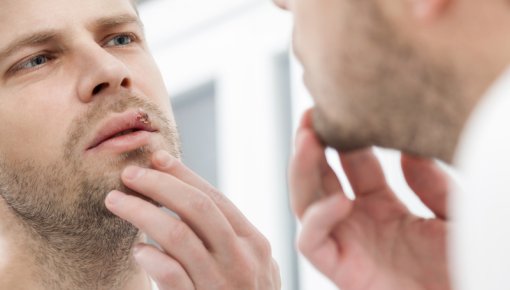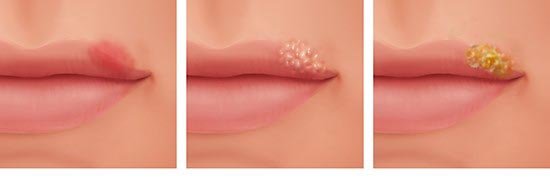Arain N, Paravastu SC, Arain MA. Effectiveness of topical corticosteroids in addition to antiviral therapy in the management of recurrent herpes labialis: a systematic review and meta-analysis. BMC Infect Dis 2015; 15: 82.
Chen F, Xu H, Liu J et al. Efficacy and safety of nucleoside antiviral drugs for treatment of recurrent herpes labialis: a systematic review and meta-analysis. J Oral Pathol Med 2016; 46(8): 561-568.
Chi CC, Wang SH, Delamere FM et al. Interventions for prevention of herpes simplex labialis (cold sores on the lips). Cochrane Database Syst Rev 2015; (8): CD010095.
Glenny AM, Fernandez Mauleffinch LM, Pavitt S, Walsh T. Interventions for the prevention and treatment of herpes simplex virus in patients being treated for cancer. Cochrane Database Syst Rev 2009; (1): CD006706.
Hull CM, Harmenberg J, Arlander E et al. Early treatment of cold sores with topical ME-609 decreases the frequency of ulcerative lesions: a randomized, double-blind, placebo-controlled, patient-initiated clinical trial. J Am Acad Dermatol 2011; 64(4): 696.
James C, Harfouche M, Welton NJ et al. Herpes simplex virus: global infection prevalence and incidence estimates, 2016. Bull World Health Organ 2020; 98(5): 315-329.
Korr G, Thamm M, Czogiel I et al. Decreasing seroprevalence of herpes simplex virus type 1 and type 2 in Germany leaves many people susceptible to genital infection: time to raise awareness and enhance control. BMC Infect Dis 2017; 17(1): 471.
Pebody RG, Andrews N, Brown D et al. The seroepidemiology of herpes simplex virus type 1 and 2 in Europe. Sex Transm Infect 2004; 80(3): 185-191.
Poole CL, James SH. Antiviral Therapies for Herpesviruses: Current Agents and New Directions. Clin Ther 2018; 40(8): 1282-1298.
Usatine RP, Tinitigan R. Nongenital herpes simplex virus. Am Fam Physician 2010; 82(9): 1075-1082.
Whitley RJ, Roizman B. Herpes simplex virus infections. Lancet 2001; 357(9267): 1513-1518.
IQWiG health information is written with the aim of helping people understand the advantages and disadvantages of the main treatment options and health care services.
Because IQWiG is a German institute, some of the information provided here is specific to the German health care system. The suitability of any of the described options in an individual case can be determined by talking to a doctor. informedhealth.org can provide support for talks with doctors and other medical professionals, but cannot replace them. We do not offer individual consultations.
Our information is based on the results of good-quality studies. It is written by a team of health care professionals, scientists and editors, and reviewed by external experts. You can find a detailed description of how our health information is produced and updated in our methods.


